8 natural wonders that are actually created by man
Categories: Beauty | Nature | Photo project | Travel | World
By Vika https://pictolic.com/article/8-natural-wonders-that-are-actually-created-by-man.htmlThere are many very unusual places and breathtaking natural creations in the world. But sometimes, when a person takes on the "improvement" of Mother Nature, this leads to very unexpected results and very strange, incredible miracles of nature appear. See for yourself!
8 PHOTOS
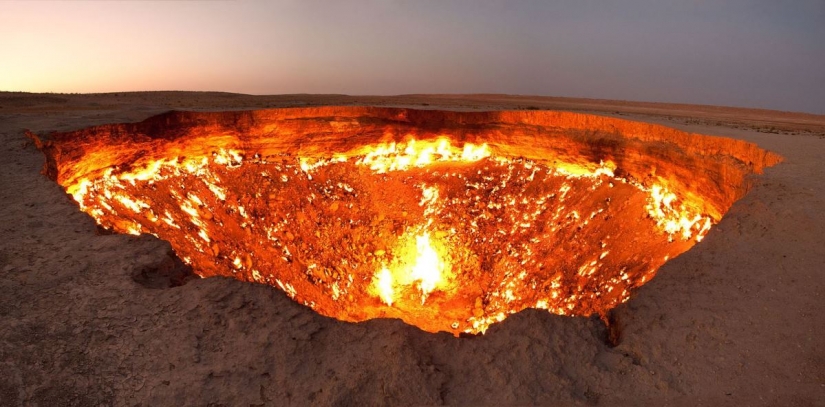
1. Darzava or "The Gates of Hell" is a gas crater in Turkmenistan that has not stopped burning for 40 years. This "great" creation is the work of Soviet engineers who were looking for oil in the 70s of the last century. (Photo: Tormod Sandtorv / Flickr.com).
During the drilling of wells, part of the soil, under which there was a large gas field, collapsed. Fearing toxic fumes, Soviet engineers did not come up with anything smarter than setting fire to the gas in order to get rid of it. So it has been burning for four decades, never ceasing to horrify and remind how destructive people can be.
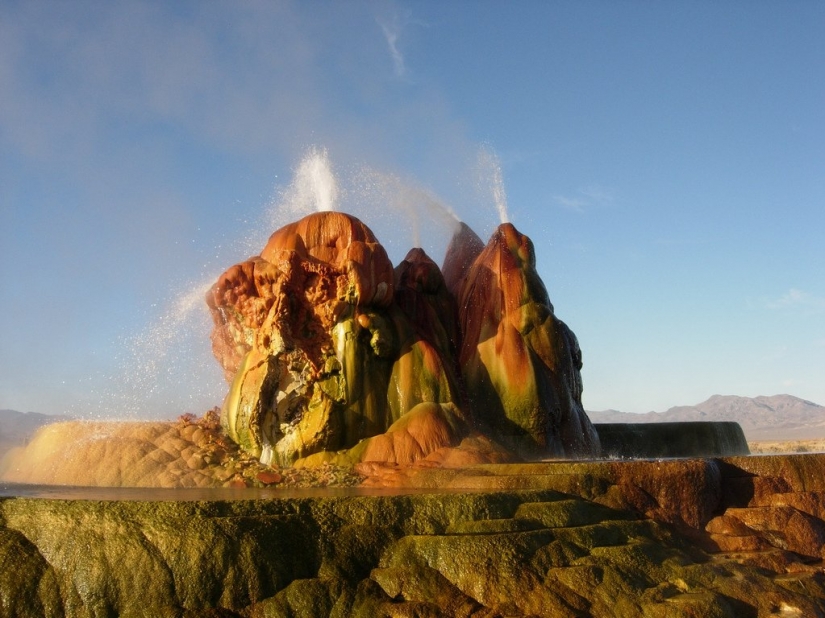
2. Fly Geyser or Fly Geyser. In fact, this is a permanent thermal spring, which again appeared due to human intervention. In 1916, drilling work was carried out in that place, and in the 60s, underground water with the inclusion of minerals from wells burst to the surface, creating this amazing creation (Photo: Ken Lund / Flickr.com).
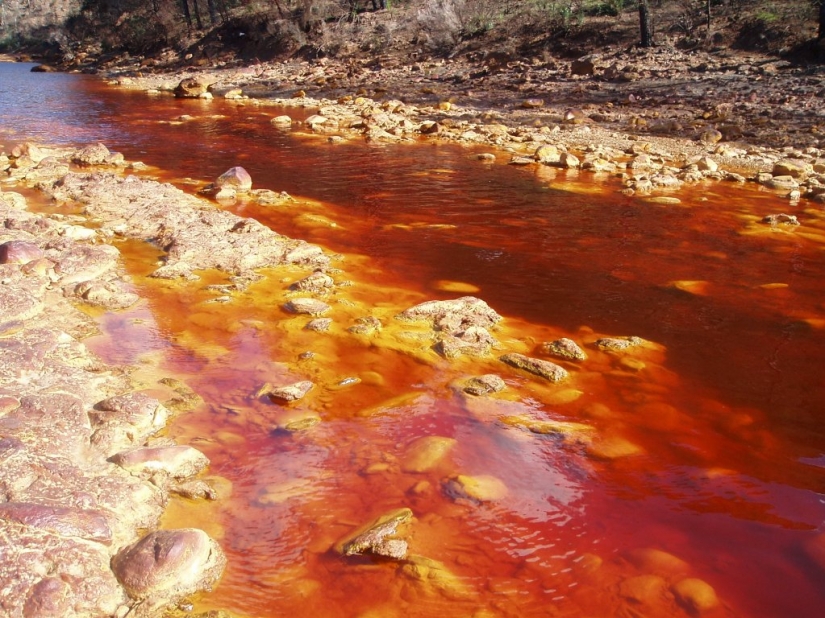
3. The waters of Rio Tinto in Spanish Andalusia are the color of blood. This water has a pH of 2, which makes it almost impossible for most organisms that exist on Earth to live in it. In fact, this river is poisonous. But why, you ask? The thing is that for centuries copper, silver, gold, and other minerals were mined in this region, as a result of which the river was polluted. The red color of its waters is given by copper, which is contained in it in large quantities. (Photo: RioTinto2006 / WikimediaCommons).
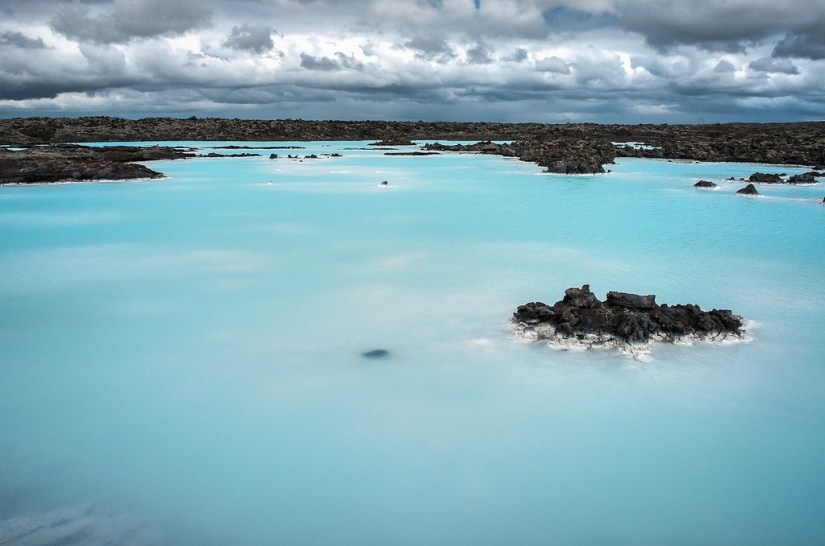
4. The Blue Lagoon in Iceland is a large pool filled with salty geothermal water. The warm lagoon appeared thanks to human activities, namely, the nearby geothermal power plant Svartsengi, which needed to store excess pumped water somewhere. The Blue Lagoon is located near Iceland's International Airport and is one of the island's largest tourist attractions. Its highly mineralized water is believed to have beneficial effects on the skin (Photo: Michelle Lee / Flickr.com).
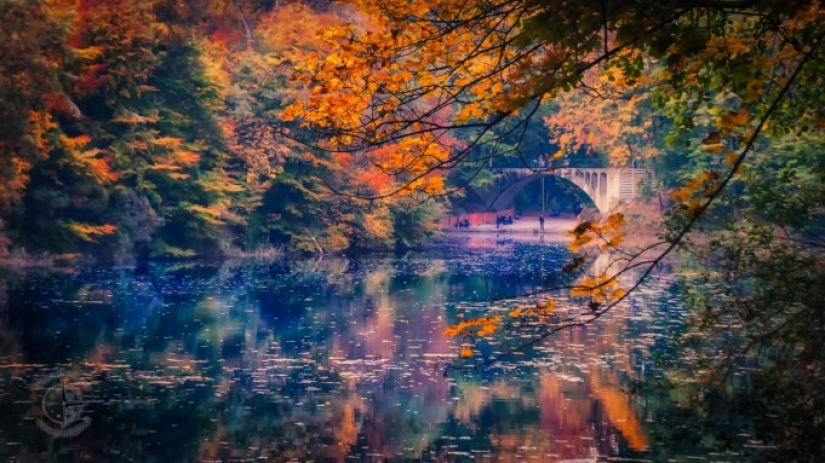
5. The Emerald Lake in Szczecin (Poland) gets its name from its color. The emerald hue gives the water a high content of calcium carbonate, formed as a result of the breakdown of calcite. The lake is located right on the site of an ancient chalk and marl mine. During mining operations, on July 16, 1925, the miners reached a layer of sand, from which water began to ooze. The mine was partially flooded, and the remains of mining equipment can still be found at the bottom of the lake. Fortunately, all workers managed to escape during the flooding. (Photo: Tomasz Przywecki / Flickr.com).
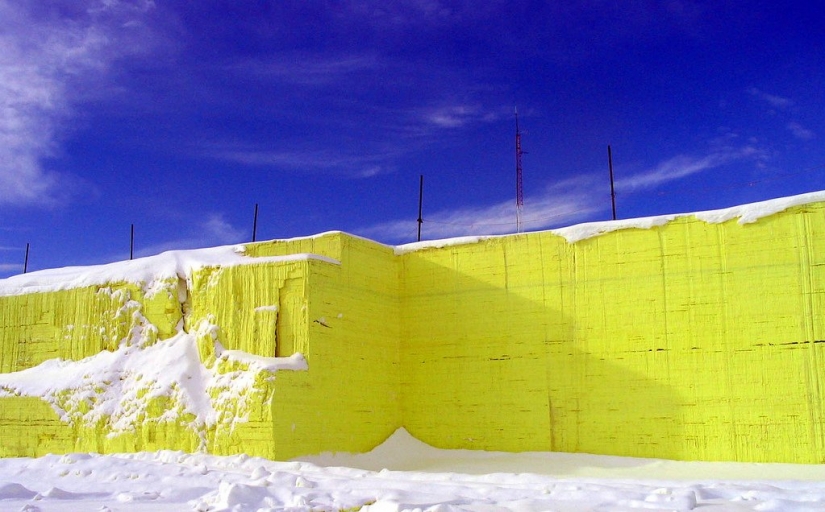
6. This huge yellow mountain is not the beginning of the construction of the pyramid, but a dump resulting from the extraction of oil sands. A byproduct of this process is sulfur, which miners don't really know what to do with. The employees of the Sincrud company came up with a brilliant idea: to make an unusual, but very attractive pyramid out of sulfur. (Photo: Gord McKenna / Flickr.com).
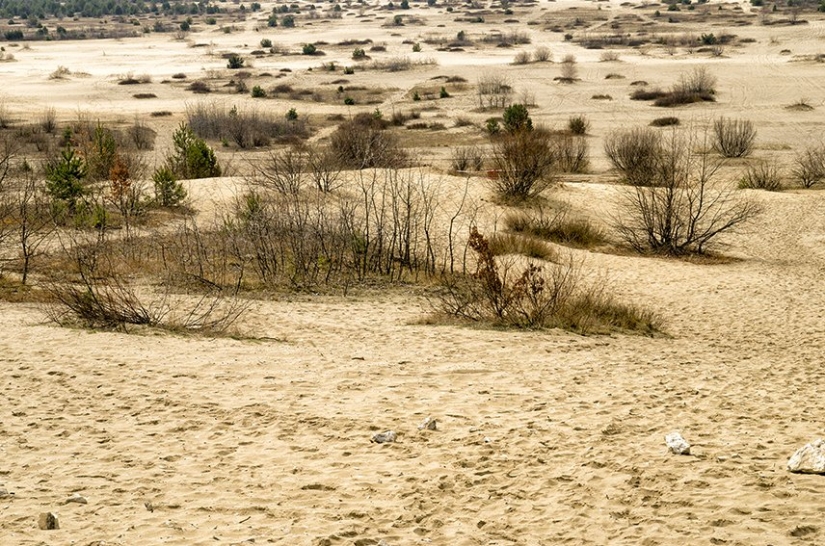
7. A desert in the center of Europe? The Błędowska Desert is a vast area of flying sands, with an area of 33 square kilometers (and at worst, 150 square kilometers), which lies on the border of the Silesian Uplands and the Paternal Plateau in Poland. It was formed as a result of human activities, including due to deforestation and the development of the mining industry and metallurgy. The water table there dropped so low that the plants stopped growing. (Photo: Dominique Cappronnier / Flickr.com).
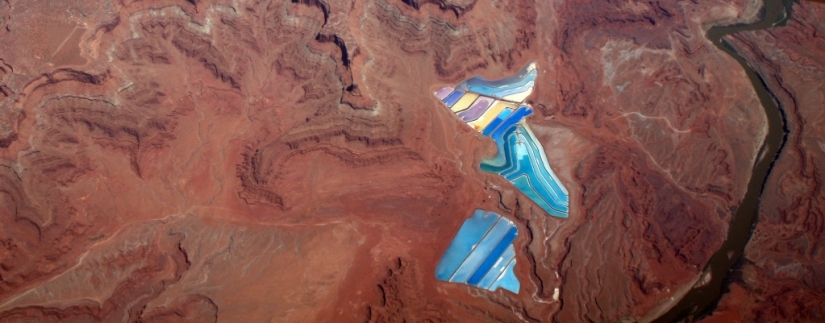
8. These unusual, colorful lakes right in the mountains in the US state of Utah are the so-called evaporation tanks. They are used for the gradual evaporation of water during the production of potash (potassium carbonate), which is used today mainly in the production of fertilizers. (Photo: Doc Searls / Flickr.com)
Keywords: Natural creations | World | Unusual places | Nature | Beauty | Landscape | Miracles of nature | Mother Nature | People | Society
Post News ArticleRecent articles

It's high time to admit that this whole hipster idea has gone too far. The concept has become so popular that even restaurants have ...

There is a perception that people only use 10% of their brain potential. But the heroes of our review, apparently, found a way to ...
Related articles

Have you heard of such a phenomenon as the doorway effect? Let's put it simply: have you ever walked into a room and immediately ...

Walking through this picturesque bridges, you can admire the views from these stunning views and breathtaking landscapes. We invite ...

Not all the house where they filmed the cult movies and TV shows, become "house-museums". Many of them are then sold as the ...

New Year's is a time to surprise and delight loved ones not only with gifts but also with a unique presentation of the holiday ...